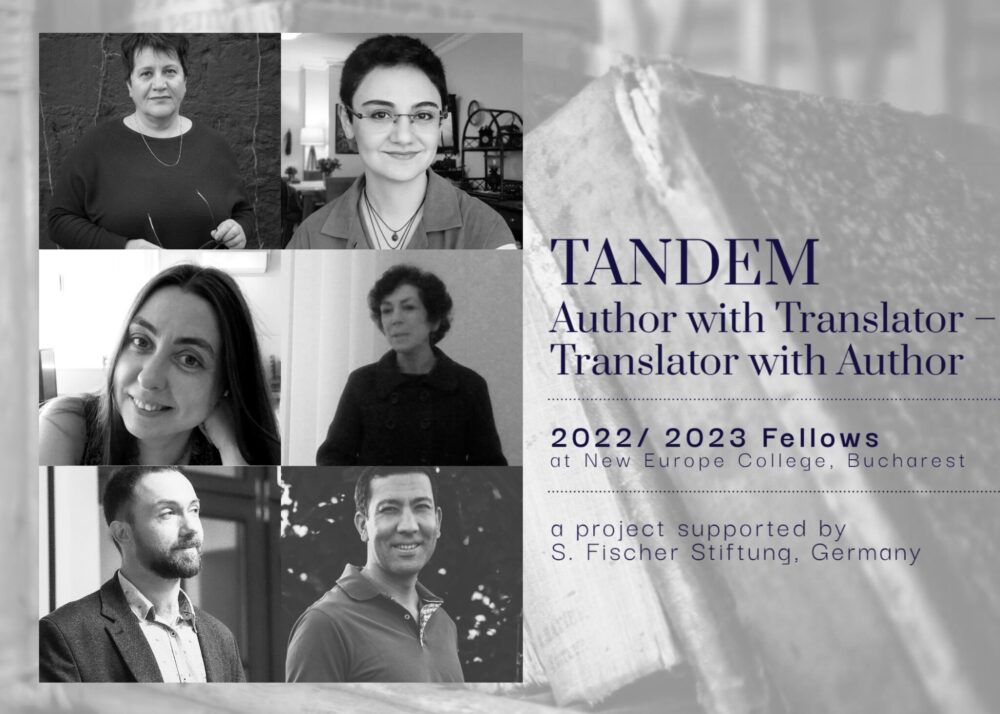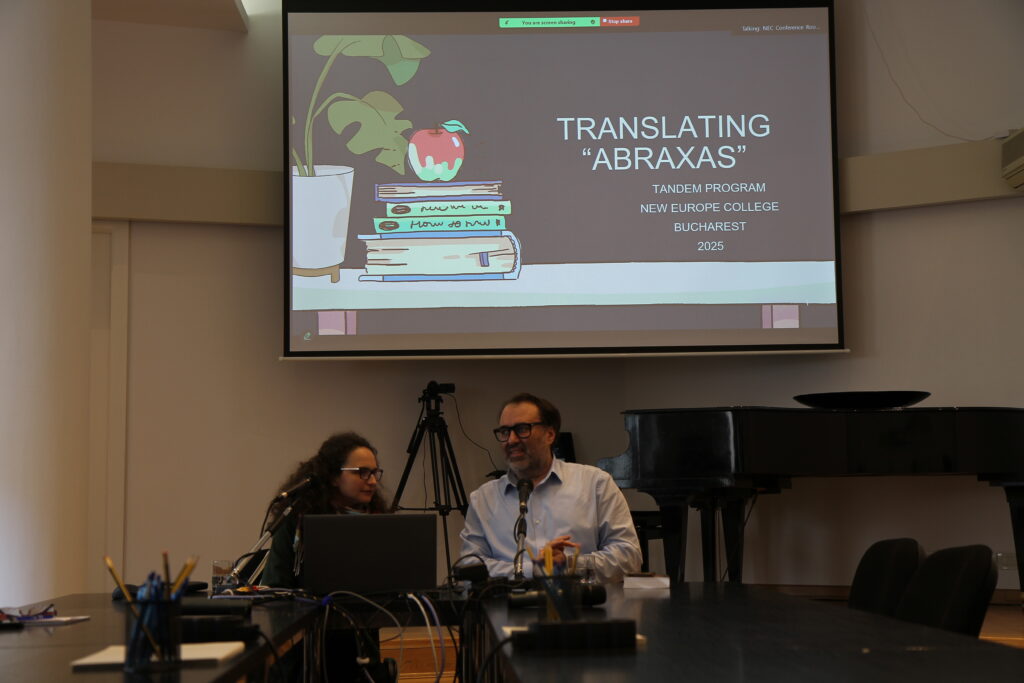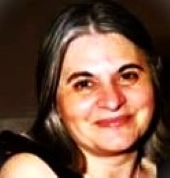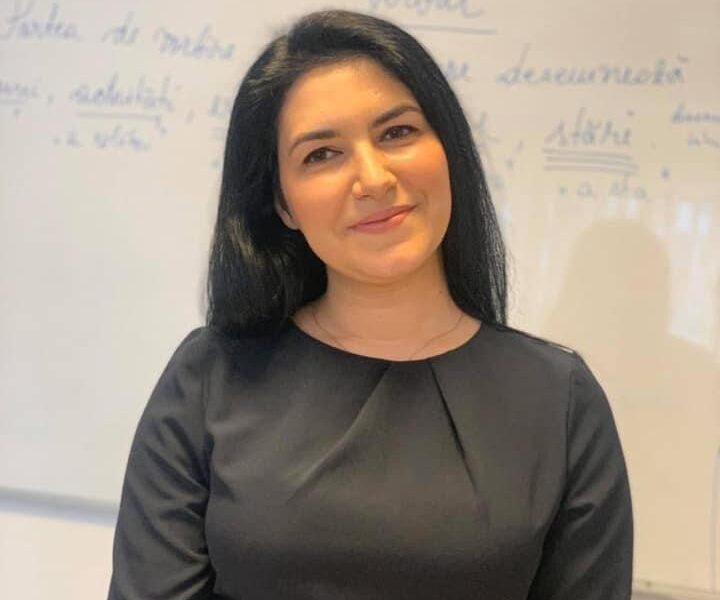Mihaela Danga is a program coordinator and librarian at the New Europe College, Institute for Advanced Studies in Bucharest. She is a certified trainer and evaluator and was deputy director at the Center for Independent Journalism and secretary of the Southeast European Network for the Professionalization of Media.
Katharina Biegger is Strategic Advisor at the Center for Governance and Culture, University of Sankt Gallen, Switzerland, member of the editorial board at New Europe College, and program coordinator at the Center for Advanced Study in Sofia. She was academic administrator at the Institute for Advanced Study (Wissenschaftskolleg zu Berlin) and earned a doctorate with a dissertation on Theophrastus Paracelsus.
Together, Mihaela Danga and Katharina Biegger coordonate "TANDEM – Author with Translator, Translator with Author", New Europe College’s fellowship dedicated to authors and translators from the countries around the Black Sea.
"TANDEM – Author with Translator, Translator with Author is a program dedicated to writers and translators belonging to countries around the Black Sea. How has the idea of this fellowship emerged and how have you managed to include it among the projects developed by New Europe College, Institute for Advanced Studies in Bucharest?
Since 2010, the New Europe College has run several scholarly fellowship programs with a special regional focus on the Black Sea area and the post-soviet space. To support young and talented researchers from the (South-) East European countries and bring them together in Bucharest is, so to say, an attempt to contribute to a European Neighbourhood Policy. One of the NEC programs allowed the invitation not only of researchers, so that a few distinguished writers could be invited. In 2021, we organized a colloquium (“Writers from around the Black Sea between Art and Academia”) with three of the former grantees: Maria Rybakova from Russia, Andriy Lyubka from Ukraine, and Tamta Melashvili from Georgia. In the course of their conversation, they regretted the lack of connections between the societies and cultures of the countries around the Black Sea and the few translations of literary works. This complaint of the authors triggered the idea of developing a focused translation program for works from regional languages into regional languages.
Why is the Black Sea in particular the localizing element of this program?
We can choose two different perspectives to answer this question. From the NEC's point of view, it should be noted that the institute has many years of experience in collaborating with researchers from the region and has therefore built up a wide network of people. From a geopolitical perspective, the area is ridden with fierce conflicts, aggression and demarcation, and has to come to terms with painful historical legacies. We hope and believe that literature and translation can act as mediators between cultures. Therefore, Tandem translations are intended to strengthen a particularly precarious geopolitical neighbourhood on the eastern/south-eastern edges of Europe, by deepening mutual knowledge and understanding. And it is important to note that there is a lively creative landscape, where several "small" languages are spoken and "small" literatures are thriving – well worth being known more widely.
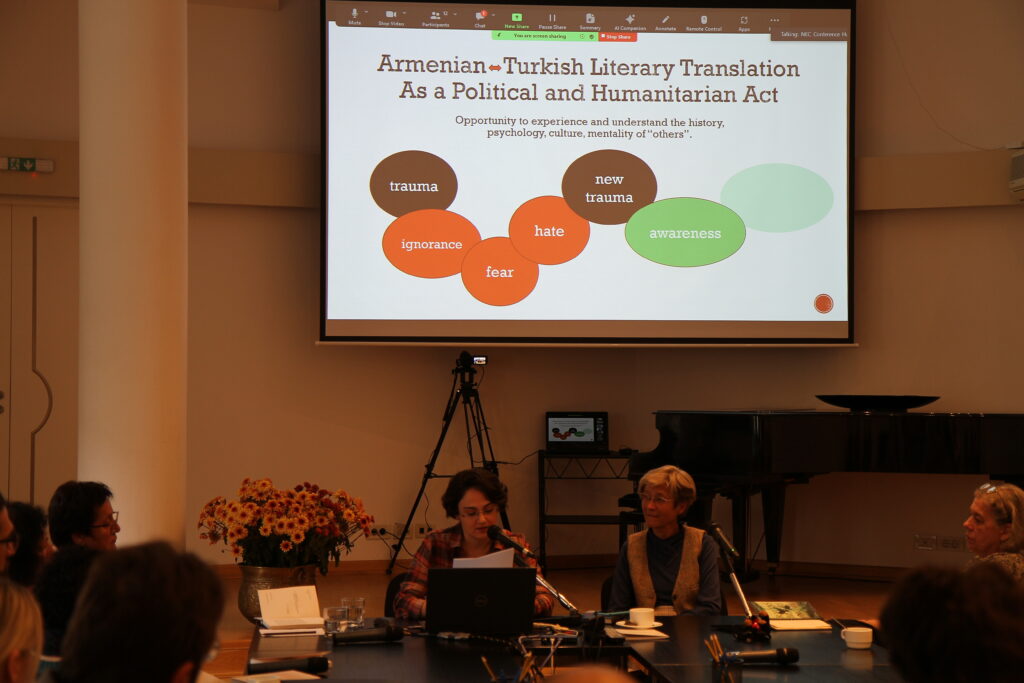
The literati granted this fellowship receive a two-month residence at New Europe College, travel and accommodation funds and a stipend – among other benefits. These are supported by S. Fischer Stiftung in Berlin. How have you managed to initiate this collaboration and why has the German association joined this project?
S. Fischer Stiftung has a wide and brilliant reputation for supporting literary translations, and in particular so for literature in languages that are not so present on the commercialised global market. The foundation is a main sponsor of the Tradukiprogramme which promotes the exchange among Southeast European/Balkan languages. When we presented our idea to the director, we received a favourable response and could immediately set about submitting a proper application.
The main purpose of TANDEM is disseminating contemporary literature inside the Black Sea region, so the texts to be translated should be highly literary, covering novels, short stories, poem, children’s literature or, sometimes, nonfiction. Which are the other criteria the jury takes into account when analyzing the applications?
If we may simply answer in keywords
- Quality of work to be translated (must be published!);
- Professional standing of translator;
- Combination of languages;
- A certain fluency in English, the usual working language at NEC events;
- Motivation to join the NEC scholarly community and to come to Bucharest/Romania more generally.
Yet the jury members are still learning, trying to draw conclusions from previous experiences and improve the format even further!
During the residence in Bucharest, the TANDEM fellows participate in the NEC seminars and events. From your point of view and experience, which are the most important advantages for them of belonging to the international community formed at NEC every academic year?
First of all, Tandem fellowships offer the opportunity of a direct contact with a strong and vibrant research community. Moreover, they can lead to new projects that the Tandem fellows develop individually (e.g.: a member of a Tandem team in the previous academic year applied and was accepted as a NEC fellow this year) or together with other researchers/entities (e.g.: some proposals that may become reality: an anthology of Romanian poetry to be translated into Georgian, a festival of the Black Sea countries, etc.). Tandem fellows also participate in literary/cultural events (FILIT, meetings with writers and translators, with students from the Faculty of Letters in Bucharest, and Iasi, etc.). So, on the one hand, Tandem fellows are exposed to Romanian culture and, on the other hand, the Romanian audience is familiarized with the literary landscape of the Black Sea Region.
I would add also that it is informative for the NEC scholars to hear and learn about language and translation from their Tandem Co-fellows. E.g., it makes them aware of the importance of linguistic expression and the culturally specific meaning of concepts
Moving to the fellows’ experience, what kind of feedback have you received from the ones who have already finished their fellowship?
Rapoartele bursierilor reliefează importanța legăturii directe dintre autor și traducător și prilejul unic de a lucra împreună la traducere, ceea ce face din TANDEM unul dintre puținele programe de acest gen. Feedbackul mai arată că „este esențial să te angajezi într-un dialog cu autorul, să obții aprobarea sa pentru unele schimbări necesare, să găsești împreună soluții alternative, aceasta necesitând mult timp petrecut laolaltă” (Ani Sarukhanyan).
Here are some excerpts from the fellows’ reports:
“Marina Vraciu and I had ample opportunities to discuss the intricacies of the translation from one language into the other. Living next to each other facilitated these daily discussions. Our stay in the historical part of Bucharest (that figures in the book) played an immensely important role in facilitating understanding of the setting and the translation of this setting into another language.” (Maria Rybakova)
“I have had the chance to learn from her [‘the author’ directly how she worked on this particular book and what inspired her to build up her picture of the troubling unsettling world of characters seeking some stability in a clash with the bad in their inner world and with the outer world. All this has given me a better understanding of the distance between the historical and the fictional. Talking to Author has given me a rare opportunity to understand some facts from `the laboratory of creation’.
În al treilea rând, cadrul de referință al autoarei – dictatori și regimuri totalitare – mi-a trezit nevoia de a-mi revizui perspectiva asupra trecutului pre-1989 al țării mele. În ultimul rând, dar la fel de important, am ajuns să-mi dau seama că toate aceste procese interioare sunt inerente actului traducerii, care este, în primul rând, un act de lectură atentă. Cred că toate aceste aspecte se combină pentru a susține încrederea traducătorului și pentru a contribui la calitatea produsului.” (Marina Vraciu)
Another report pointed out “the opportunity of discussing with the author and explaining the proposed translation options improves the quality of the translator's work. At the same time, in this way we can ensure that the translation (in Turkish) transmits the message intended by the author.
In addition to these benefits resulted from working on the text together with the author, the discussions we had helped me to better understand the target audience of the book, the message he wants to convey and the purpose of his work.” (Metin Omer)
Once the fellowship is done, the tandems enter the NEC alumni community. Do you stay in touch with them, do you follow up their professional journey or the evolution of the translated texts to published books?
The Tandem alumnae/alumni, as members of the NEC community, attend NEC regular events in person or online. They also represent a valuable tool for sharing information related to NEC activity in general
NEC keeps a close eye on the activity of the Tandem author/translators, with a focus on the works translated during the residencies. In some cases, NEC contributes to the publication of the Tandem translations (for example: the publication of Kato Javakhishvili children’s book, With love, Eliin Ukrainian).
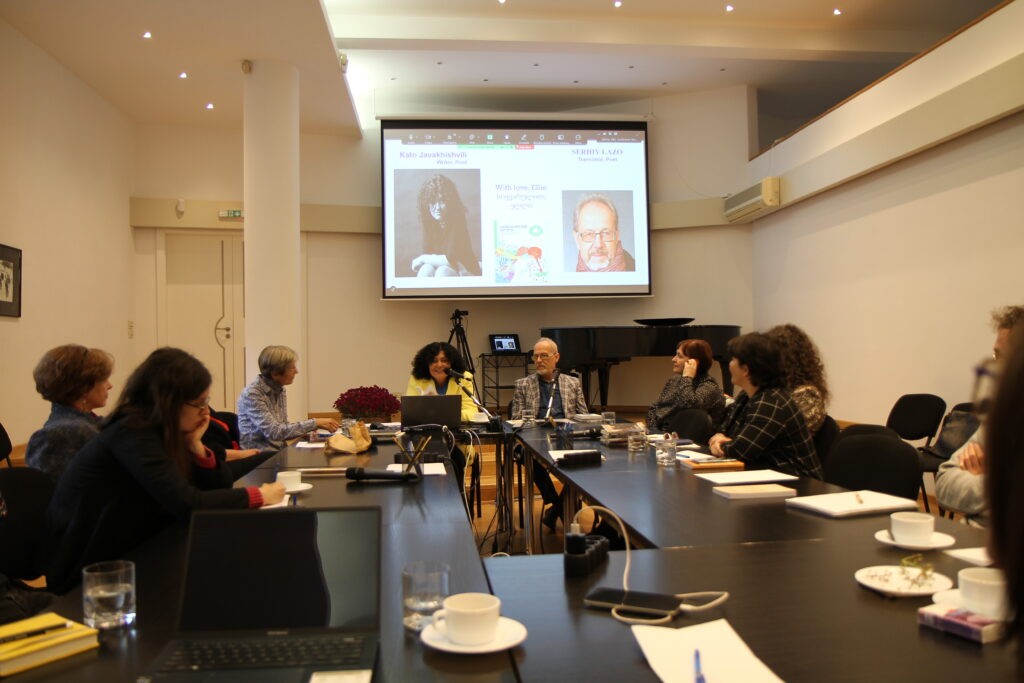
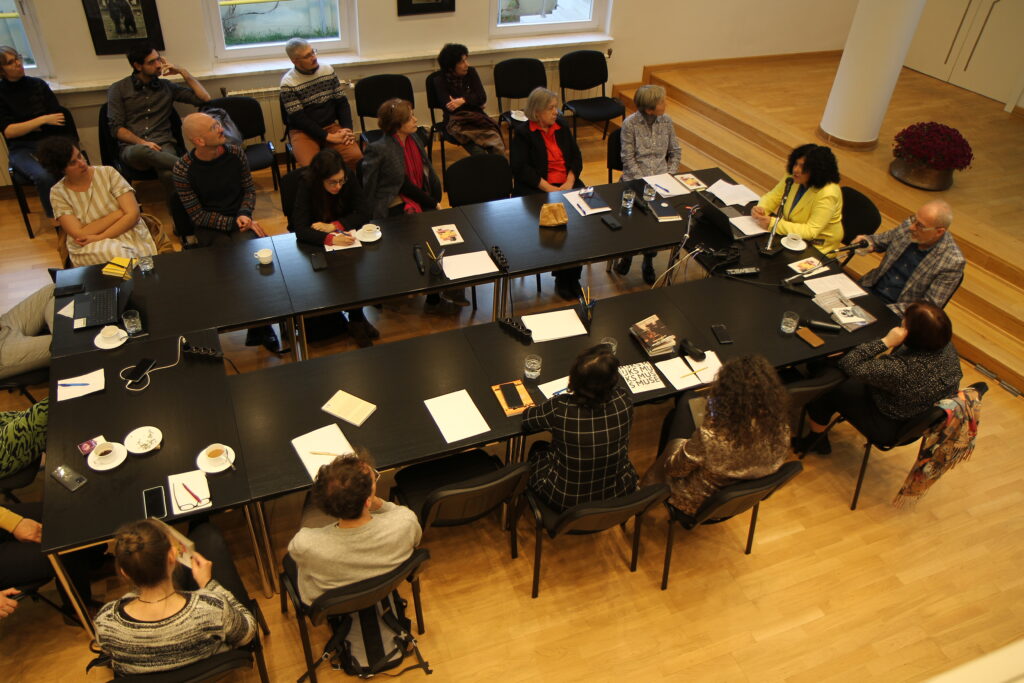
The NEC team can also offer assistance with visa procedures or residence permit. Considering some fellows come from politically and socially instable countries, have you faced any bureaucratic or diplomatic challenges in this regard?
Yes, sometimes it can get quite complicated to follow the visa procedures and meet all the requirements since most Tandem fellows come from non-EU countries. However, that is ‘regular business’ for NEC staff and we have always managed to overcome challenges. Let me remind you that every year, around 30 researchers from all over the world have residencies at NEC, which means we are prepared to deal with such issues. So, we could conclude that, so far, we have had only bureaucratic challenges.
Which are the tools or networks you use to disseminate the TANDEM calls and how do you reach the targeted writers and translators?
Am început cu analizarea sistematică a instituțiilor academice din țările-țintă în care există departamente de studii de traducere și am abordat traducători experimentați și agenți literari. Așa am creat un set variat, dar compact de destinatari pentru apelul de candidaturi. În plus, sigur că folosim rețelele obișnuite (Newsletter-ul pe care NEC îl editează lunar, grupuri de traducători în social media etc.), iar de-acum putem conta și pe foștii bursieri TANDEM!
When is the next call?
The next call has just been launched. The deadline for receiving applications is 25 March 2025.
As you yourselves are interested in contemporary literature from this part of Europe (and beyond), which are the books around the Black Sea you discovered and loved lately?
Artem Chekh: Absolute Zero. Ioana Pârvulescu: Inocenţii. Andrey Kurkov: Grey Bees. Tamta Melashvili: Blackbird Blackbird Blackberry. Susanna Harutyunyan: Ravens before Noah. V. Domontovych: On Shaky Ground. Valerian Pidmohylny: The City.
[Photos from NEC’s archive.]
[Traducere în limba română de Mihaela Danga/Ilinca Stroe – NEC.]

